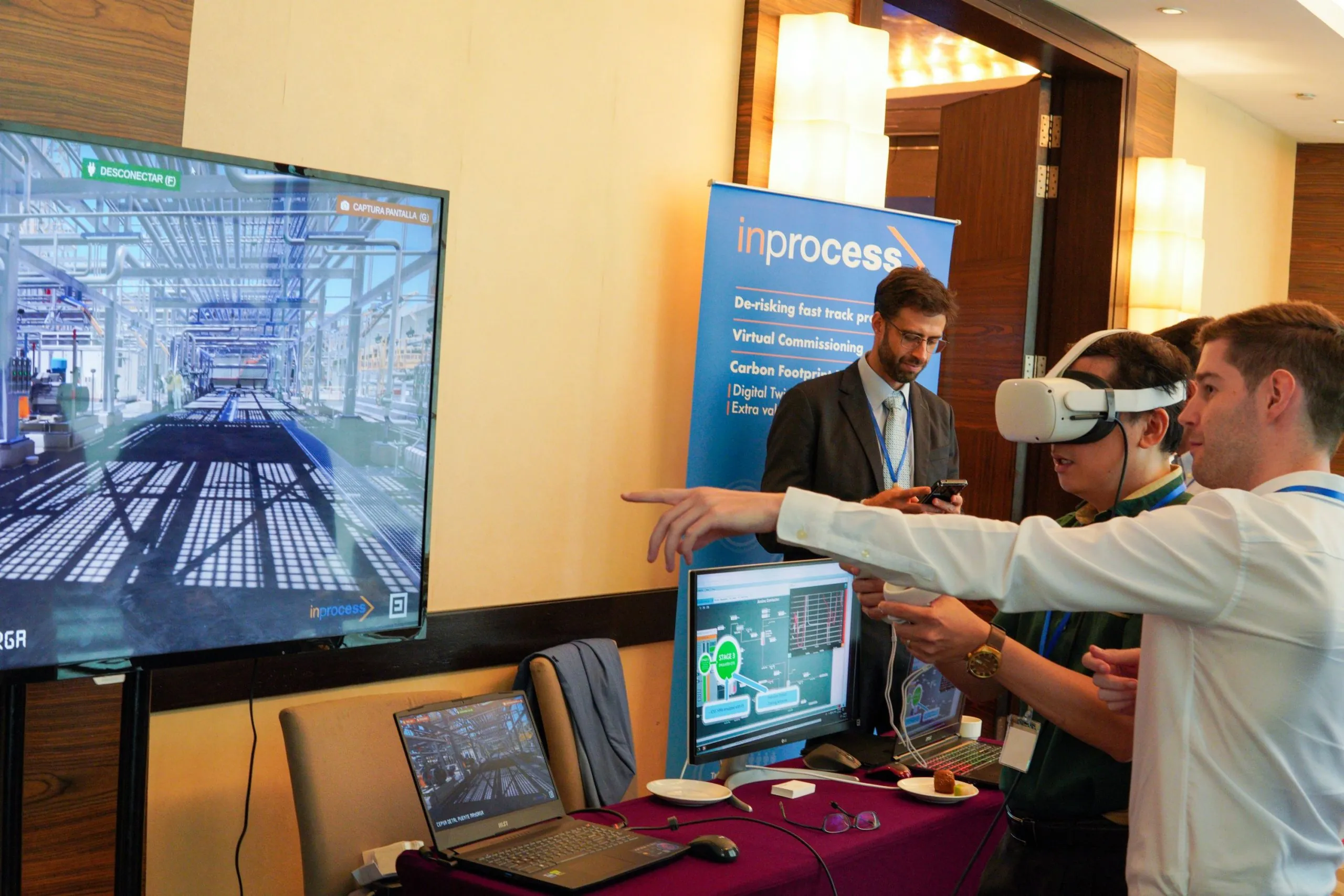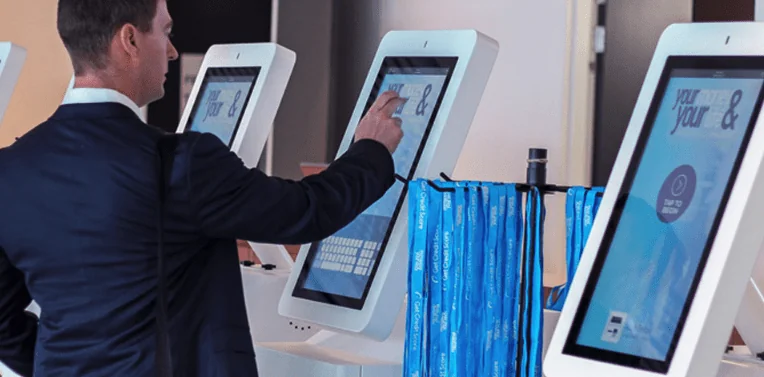
Measuring and Evaluating Impact of Corporate Events
October 26, 2023
Amplify Your Event with Top Social Media Strategies
August 23, 2024Enhancing Event Management with Technology
Tips & Tricks · 9 Aug 2024
The event management landscape has grown to incorporate technology as it is essential in the events industry. Technology in this sphere deals with streamlining processes and elevating the experience altogether. It has simplified registration and provided personalized attendee interactions for both parties, the event company and the attendees. Integrating digital tools that manage complex event management workings, marketing to improve targeting and effective campaigns, and offering interactive experiences provides valuable insights to refine future events. More importantly, it reduces manual work and ensures a smooth execution. Let’s take a look at how you can leverage technology to better your next event.

Check Out Eventive Event Management Services
Online Registration

Check Out Eventive's Event Management Services
Streamlining is the norm these days and what better way to streamline event planning than the registration process? Online registration and ticketing systems have changed how attendees sign up for events. These platforms simplify registration processes and make them efficient for the organizers and participants. Events that can use this are conferences and seminars, webinars and virtual events, product launches, etc.
Key features
User-friendly interface:
The user-friendly interface allows attendees to sign up without trouble. The navigation on these platforms caters to the non tech-savvy crowd and makes signing up easier. These platforms also help with customizable registration forms that enable them to collect relevant and specific information needed for their event. It helps event companies to tailor their experiences to meet various requirements.
Real-time data:
Real-time data is a significant advantage for event managers and management companies. With real-time data, organizers can track sign-ups, monitor attendance, and make informed decisions based on this. It allows event organizers to make quick changes and adjustments and provides an overall sense of coordination. These integrations can link registration data with CRM systems, marketing tools, and on-site check-in systems, providing a comprehensive overview of all event management activities.
Timely and efficient:
All the stages of an event management work around time and efficiency. Online registration and ticketing systems offer automation of the registration process. This results in reduced manual labor and speeds up the entire process. Real-time data and analysis provide valuable insights that help in monitoring trends. It can help make timely adjustments and improve event management outcomes.
On-site Registration (in person)

Check Out Eventive's Event Management Services
On-site registration further streamlines the check-in process, making it quick and efficient for attendee management. The features of these systems include QR code scanning, badge printing, and real-time attendee tracking. Events that can use this are trade shows and expos, networking events, sporting events, and local community events.
Managing the physical event space efficiently is crucial for the success of on-site registration.
Key features
Reduced Wait Times
Attendees can scan QR codes and receive entry badges, minimising queues and overcrowding. This efficiency ensures a well-managed and coordinated event management provides a good impression and sets the tone for the rest of the event.
Improved Data Accuracy
On-site systems eliminate the need for manual data entry, reducing the risk of errors and ensuring that all the information is up-to-date and correct. It helps in consistency, coordination, and enhancing the overall event management. This accuracy is crucial and can provide valuable insights to event organizers to learn more about their audience which can help them in future events.
Professional Impression
Companies that host events want to appear tech savvy and up-to-date and not inefficient and haphazard. The use of advanced technology for on-site registration reflects well on the company and its event management style, whether the event is in person or virtual. It portrays them as innovative and efficient. This impression can enhance the overall reputation of the event management and encourage attendees to participate in future events.
Event Promotion and Marketing

Check Out Eventive Event Marketing Services
Events management, including event promotion and marketing, is crucial for the success of any event. Leveraging technology in this area can significantly help increase engagement for the event by creating awareness and generating leads. Using social media platforms like Instagram, Facebook, TikTok, and Linkedin has become a standard practice. It allows for targeted advertising and helps reach specific demographics that would be the ideal attendee group for the event. Social media also allows attendees to interact through promotion and real-time updates.
Key trends
Incorporating AI
This is an emerging trend in all industries. It is an advantage in event management. AI can analyse large datasets and identify patterns and preferences. It enables personalised marketing campaigns. It resonates more with the audience engagement and attendance. Attendees can access additional brochures through these QR codes. AI can analyse data from scanned QR codes to understand attendee preference and behaviours.
Gamification
Gamification is another trend that can boost engagement. It’s incorporated into event promotions through contests, quizzes, and rewards. It creates a sense of anticipation encouraging attendees to participate and attend the event. Gamification allows for promotional activities that make it more memorable and enjoyable, increasing overall engagement and interest in the event.
Personalised Marketing
Personalised marketing tailors communications and promotions to individual preferences and behaviours. By analysing the data from past events and attendee experiences and interactions, organisers can create an enhanced event in the future that is more customised to their target audience. The approach makes the marketing efforts more relevant and improves the chances of attracting the right audience. These personalised marketing efforts contribute significantly to successful event management.
Event Management Tools

Check Out Eventive's Event Planning Services
Event management tools help event planners organise and schedule their data and plan to ensure the smooth running of the event from start to finish. From vendors to attendees, everything’s managed using event management tools. They are available at different stages. These are:
Planning the Event
Event management software like Cvent and Eventbrite handles registration, ticketing, and scheduling from a single dashboard. Project management tools such as Trello and Asana help organize, delegate, and collaborate with team members. Softwares that help track budgets, including Excel help in avoiding overspending by providing real-time insights. Software like Mailchimp keeps attendees notified with updates and reminders. Many event management tools are covered in a comprehensive event management course.
Post Event
Audience engagement is crucial even after the event is over. By collecting data after the event, organisers can better suit the next event to the audience based on feedback. This feedback can be collected using software like Slido and Poll Everywhere. For virtual events, organisers can send recordings for those who missed them. Post-event analytic tools generate reports that help in the next event.
Conclusion
Technology appears to be a boon and an essential for the event industry. Incorporating it into event management creates an efficient, engaging, and successful event. Collecting data helps gain valuable insights for future events to elevate their quality and impact. Leveraging tools for planning and execution, organizers can streamline processes and enhance the overall experience for the event management and the attendees. Incorporating risk management strategies ensures that events are not only engaging but also secure and well-prepared for any uncertainties. Collecting data helps gain valuable insights for future events to elevate their quality and impact.
Ready to take your corporate events to the next level?
At Eventive, we ensure your event creates lasting impressions and unforgettable experiences.
Contact us today to discover how our innovative solutions can enhance your engagement for future success. Let’s make your next event remarkable; partner with Eventive, your corporate event specialist.
Let’s Collaborate.
Get in touch with us for your next event!
We hope you enjoyed this article “Enhancing Event Management with Technology”. Head on to Our Works to see the events we have managed!
If you are looking to manage an event, then look no further than us.
